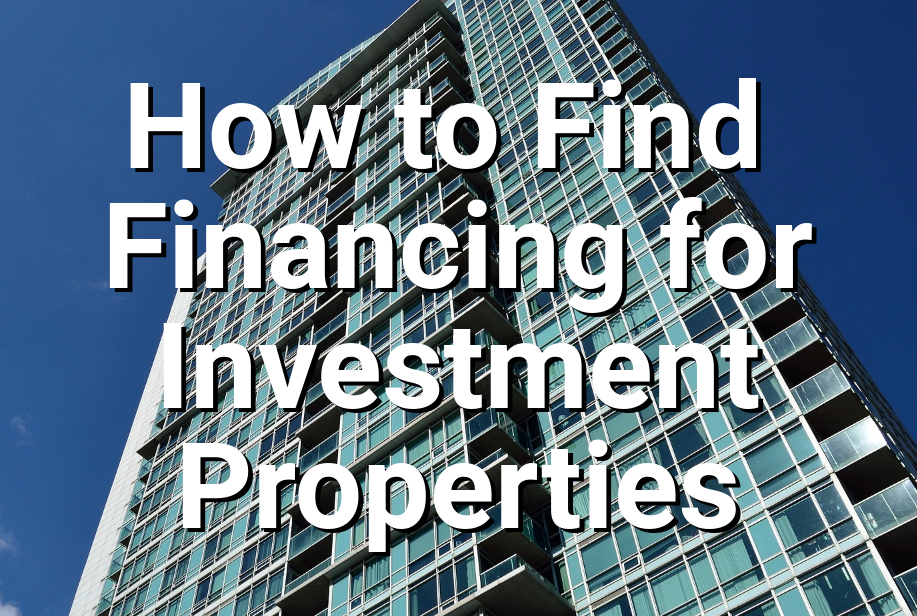Owning real estate property is perhaps the most stable and reliable investments you can make. Property has a long history of consistent growth, but it’s not easy to purchase, as you usually need hundreds of thousands of dollars.
Fortunately, you can get financing for investment properties and rental units, helping you build a solid financial foundation.
Investment Properties: How to Get Approved for Financing
Gather Your Paperwork
You’ll need to have several different documents before you meet with lenders. This will include, but is certainly not limited to, bank statements, investment accounts, retirement accounts, and pay stubs. You may also need to bring copies of your driver’s license, Social Security card, and any legal documents that affect your financial status, such as bankruptcy or divorce papers.
Anyone who is self employed will need to bring business licenses, CPA letters verifying the age of the business, tax returns, and financial statements.
Bring a Significant Down Payment
The more money you can bring towards a down payment, the better. For most investment properties, you’ll need to bring at least 20%, but if you can reach 25% or higher, you’ll likely qualify for better interest rates.
While having no down payment is not a deal breaker, it will make the process more difficult, so before you buy an investment property, save as much cash as you can. This step (and others) can take time to complete, so start saving as soon as possible for the best results.
Check and Improve Your Credit Score
There are many factors that lenders will consider, but your credit score is one of the most important. Be sure to check your credit score before you meet with lenders so you have a fair idea of what they will see.
When looking for financing in investment properties, anything below 740 can be costly to your bottom line. If your score is below this level, you may have to pay higher interest rates on your loan, which can equal tens of thousands of dollars through the life of the loan.
Consult with Multiple Lending Institutions
You are making a large investment in your financial future, so you deserve to shop around and meet with multiple lenders. In some cases, you may find that the large national banks may not be able to provide the loan you need, but smaller community banks may be able to help. Smaller institutions generally have more flexibility and a larger interest in supporting the local economy.
Either way, you should feel free to consult with multiple lenders to find the best deal for your needs. Never assume that the first lender you meet with is your only choice.
Consider Owner Financing

Also called seller financing, this is a situation when you buy the property from the current owner and simply make payments directly to them. Instead of having a bank in the middle, the seller basically becomes the bank. For added protection, the owner maintains the right to foreclose if you stop making payments.
However, finding an owner who will agree to owner financing can be extremely difficult. Most people would rather get a full amount from the bank and be done with it, so be prepared for a wide variety of variables, including higher interest rates.
Look to a 203K Loan
The 203(k) mortgage program is designed to help with the rehabilitation and repair of single-family properties. It was created by the federal government to enhance communities and neighborhoods by making home improvements easier.
As an investor, you may be able to use this type of loan to support your investment-property purchase. This program currently offers up to $35,000 in lending, which can be used to repair and improve homes. With one of these loans, you can get the financing you need to make a fixer-upper move-in ready.
Save a Large Pile for Cash Reserves
If you are unable to rent out your property, or if the tenant is unable to make payments, lenders still expect to be paid. To make sure you can handle any financial difficulties, they will like to see that you have saved a significant amount in cash reserves.
There is no industry standard or official number, but six-months worth of cash reserves is a solid goal. For example, if you will be renting the property for $1,000 a month, you should have at least $6,000 in cash reserves.
Verify All of Your Assets
Bringing proof of financial and physical assets will also help you get the financing you are looking for. Bring proof of any property you own, including other rentals, cars, equipment, stocks, and anything else that is of value. By proving ownership, you give lenders greater reassurance that you are a safe bet for financing.
Consider Using Your Home’s Equity for the Purchase
You can use equity in your home for many different reasons, including the purchase of investment property. If you own your home outright but don’t have cash on hand to purchase an investment property, you can leverage ownership to make the purchase. There are a few different programs available, so be sure to speak with a qualified expert.
Consider Buying as an Owner-Occupant
With this step, you essentially purchase the home as a primary residence, live in it for a certain period, then use it as a rental property. In most cases, banks will require smaller down payments for owner-occupant loans that typical investment loans. You may also find that interest rates are better.
Remember that there are rules, and you’ll likely have to live in the property for roughly a year before you can rent it out to tenants.
Expert Advice on Your Investment Financing
No matter what type of financing you use, you should talk with an experienced mortgage expert who can help you completely understand your purchase.
With years of experience and a dedication to service, we can provide the right information and help you get approved as soon as possible, so contact us today!


